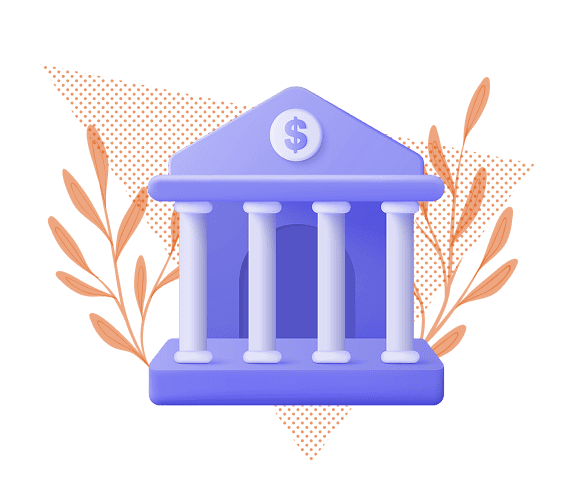Does an Overdraft Affect Your Credit Score in Singapore?
Updated: 25 Jul 2025
Written bySingSaver Team
Team
The information on this page is for educational and informational purposes only and should not be considered financial or investment advice. While we review and compare financial products to help you find the best options, we do not provide personalised recommendations or investment advisory services. Always do your own research or consult a licensed financial professional before making any financial decisions.
Managing your money in Singapore comes with many modern conveniences, but it is still easy to slip up. An overdraft is one such scenario. While often unintentional, dipping into the red can lead to bigger problems if not addressed quickly. Whether authorised or unauthorised, overdrafts can trigger late payment fees, bounced transactions and — in more serious cases — affect your credit standing. In this guide, we explain how overdrafts work in Singapore, how they can (and cannot) affect your credit score, and what you can do to avoid falling into financial trouble.
» Compare overdraft fees in Singapore 2025
How overdrafts work and why they matter
In Singapore, an overdraft occurs when your current account balance falls below zero — essentially borrowing from your bank. There are two types:
-
Authorised overdrafts: Pre-approved credit limits that allow you to spend beyond your balance, usually with agreed interest rates and fees.
-
Unauthorised overdrafts: Occur when you exceed your authorised limit or have no agreement in place. These often attract higher fees and stricter penalties.
While authorised overdrafts offer a safety net, both types should be used carefully. Although simply dipping into your overdraft does not automatically affect your credit score, how you handle repayment can have a long-term impact on your financial profile.
» Deep-dive into our guide to overdraft fees
Bounced cheques and unpaid debts can hurt your credit score
Overdrafts can indirectly harm your credit score, especially when they result in unpaid obligations. If your account lacks sufficient funds, scheduled GIRO payments, standing instructions, or direct debits may bounce. This can lead to serious consequences:
-
Service disruptions: Missed payments for essential services (such as utilities or insurance premiums) may lead to penalties or service suspension.
-
Debt collection: Service providers might report missed payments to collection agencies, which could affect your record with Credit Bureau Singapore (CBS).
-
Internal bank action: Even if your CBS score is initially unaffected, banks may downgrade your internal risk rating or impose restrictions on your account.
Repeated missed payments, particularly on credit cards or personal loans, are likely to hurt your CBS score directly — and may make future borrowing more difficult or expensive.
» Make sure your cheques don’t bounce with our step-by-step instructions
Compare the best savings, investment, and cash management accounts in Singapore
Your information can be sent to CBS
Unlike in the United States, where systems such as ChexSystems are commonly used to track everyday banking activities, Singapore relies on Credit Bureau Singapore (CBS) to assess an individual's creditworthiness. CBS does not track daily account balances or minor overdrafts. Instead, it focuses on key indicators of credit health such as outstanding debts, credit limits, payment history and delinquencies, defaults, and bankruptcies.
This means that a brief authorised overdraft will not automatically harm your credit score. However, if an overdraft results in missed repayments or eventually leads to defaulting on a loan or credit facility, this will be recorded by CBS. Such records could make future borrowing more difficult, as lenders rely heavily on CBS data to assess risk.
Additionally, even if your CBS record remains technically unaffected, banks may still maintain internal blacklists. These lists flag customers who frequently misuse overdraft facilities or leave fees unpaid, potentially affecting your relationship with the bank and your eligibility for future products.
You might not be allowed to open new bank accounts
While Singapore banks generally maintain a welcoming approach to customers, repeated financial missteps — especially unauthorised overdrafts or failure to repay amounts owed — may lead to internal consequences.
Banks reserve the right to reject new account applications if an individual's financial history shows repeated overdrafts, bounced payments or unpaid fees at other institutions. Although such issues may not always appear in your CBS record, they can be noted internally by banks through their customer risk assessment systems. This could be particularly relevant when applying for student accounts, promotional banking packages or premium accounts, where applicants are often required to demonstrate a history of responsible account management.
Put simply, maintaining a clean financial record — both formally via CBS and informally within banks’ own records — is essential to keeping doors open to future banking products.
How to avoid overdrafts in the future
Avoiding overdrafts — and the potential credit headaches they bring — requires discipline and a proactive approach. Here are some practical tips:
-
Set alerts: Activate SMS or mobile app notifications to warn you of low balances.
-
Link a savings account: Many banks, such as DBS and UOB, allow you to set automatic top-ups from savings accounts to avoid overdrawing.
-
Budget smartly: Use apps to track expenses and set aside funds for recurring bills.
-
Monitor payment schedules: Ensure GIRO deductions or standing instructions are covered by your balance.
If you have an authorised overdraft facility, staying within your limit and repaying quickly reflects well on your relationship with your bank. Responsible overdraft use demonstrates good financial habits — and may even strengthen your case for future credit products.
» Not to be confused with a negative credit card balance, explained here
Manage your money smarter with the best bank accounts in Singapore
Compare the latest savings, current, and multi-currency accounts to find one that fits your financial needs.
About the author
SingSaver Team
At SingSaver, we make personal finance accessible with easy to understand personal finance reads, tools and money hacks that simplify all of life’s financial decisions for you.










